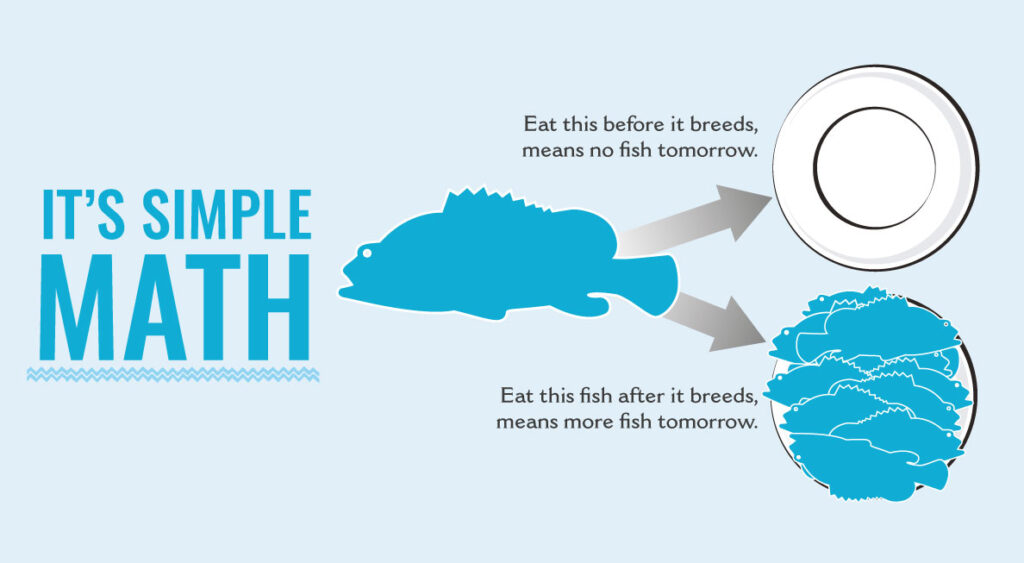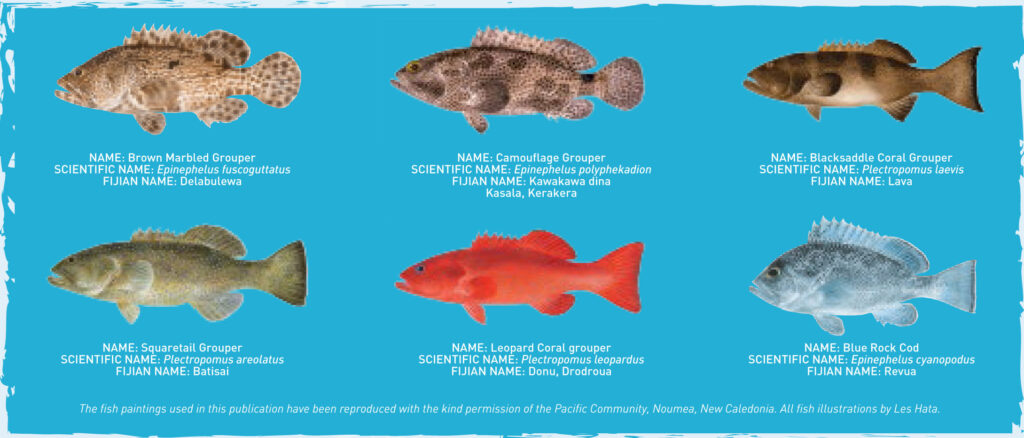The Fiji Government has banned the harvest, sale, buying, possession or export of all species of Grouper (kawakawa) and Coral Trout (donu) during their peak spawning months, from the 1st of June through to the 30th of September, to help revive these rapidly declining fish species.
Any person or business found harvesting, selling, buying, possessing or exporting kawakawa and donu during the
4-month ban period will have their fish confiscated and will receive high fines:
- For individuals, an instant fine of $10,000, with the potential of up to $50,000 in fines.
- For corporations, an instant fine of $20,000, with the potential of up to $100,000 in fines.
The level of the fine can depend on the severity of the offense and will be determined by the Fiji Court System.
Why is the Ban Needed?
Kawakawa and donu are A-grade fish that are critical food and income for Fijians. But these fisheries are facing collapse, if no management action is taken. The ban is intended to ensure the fish species are allowed to successfully breed each year, so the stocks recover. Because if we let them breed each year, we can have more fish the rest of the year.

What Species are Banned?
The harvest, sale, buying, possesion and export of all species of kawakawa (grouper) and donu (coral trout) are banned.
The six most common kawakawa and donu typically caught are:

For a full list of the fish, please see the companion Kawakawa and Donu Fish Buyers Guide and poster developed for fishers, sellers and exporters in Fiji.
Enforcing the Ban
The Ministry of Fisheries has been quietly improving its capacity to better address illegal fishing in Fiji. The Fiji Government created a stand-alone ministry to ensure Fiji maximizes its marine resources to support livelihoods and protects the country’s food security. The new Ministry of Fisheries has also created an Inshore Fisheries Management Division to better equip itself to manage fish stocks and in turn, start increasing its compliance capacity.
As the Ministry of Fisheries gears up to enforce the kawakawa and donu seasonal ban, it has an unprecedented coalition to do it. The town councils, which manage the fish markets across the country, have all pledged to work with the Ministry of Fisheries to support the enforcement of the ban. In addition, the Fiji Police Force has made similar high-level pledges to work through its community posts to inform the public and help enforce the ban. The Fiji Revenue and Customs Service is also committed to supporting the enforcement of the ban on exporters and the Fiji Navy will support the ban through targeted patrols.
What can I do if I see someone catching or selling kawakawa and donu?
The Ministry of Fisheries will need everyone’s support to effectively enforce the kawakawa and donu seasonal ban. Right now, the town councils, the Fiji Police Force, Fiji Revenue and Customs Service and Fiji Navy are stepping up. But everyone can help, including fishers, middlemen, market sellers, and consumers. We need to spread the word that the ban is in place. Let’s give people a chance to do the right thing.
And where we see it being caught or sold, we can report it to the Ministry of Fisheries by calling:
- Nausori Fisheries Office: 3476587/9966752
- Lami Fisheries Office: 3361122/9966745
- Lautoka Fisheries Office: 6665899/9966759
- Labasa Fisheries Office: 8812833/9966770
You can also help by photographing any kawakawa and donu that is caught or on sale and sharing it on the campaign Facebook page (www.facebook. com/4fjmovement) or the Ministry of Fisheries Facebook page (https://www.facebook.com/fisheriesfiji). Please note the location, seller if possible, and time of day to help document the incident for the Ministry of Fisheries.
169 Vitogo Prade Lautoka, Fiji
Mon – Thu: 8:00 am – 4:30 pm
Fri: 8:00 am – 4:00 pm
Useful Links
City Map View
Lautoka City Council © 2025. All Rights Reserved

